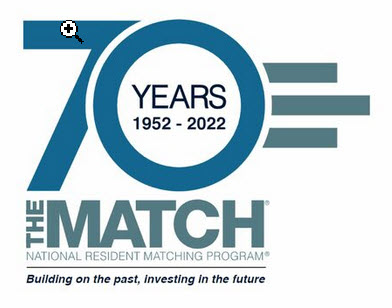Reflections on a Recent Study of What Happens After Match Day
It has been exciting for me to be here at Geisel for this match “season,” even though I only know a few of the graduating 2023s. Watching the whole process through their eyes and through the eyes of my colleagues got me curious about the process and how it works, which led me to this very interesting recent article by Kaitlyn Kaiser, Heather Lench (both in psychology at Texas A&M) and Linda Levine (in Neurobiology at UC Irvine; see full citation below). They were curious about the emotions right after the match and how they lined up with emotions a few months into residency, so they did a survey (total n = 182) at three timepoints:
- Time 1: A week before Match Day
- Time 2: A week after Match Day
- Time 3: October of PGY-1
I love the design of this study because they used both pre-existing survey measures that had been validated on medical students (of happiness, excitement, life satisfaction, stress, burnout) and their own measure, which they created from survey participants’ responses. (just for fun, see here for an awesome podcast on survey design!) At Time 1, they asked participants to list the “five most important factors they considered when making their rank list” (p. 2). The research team then did thematic analysis to code these responses into 9 categories:
- Location
- Prestige (i.e., program reputation)
- Post-residency opportunity (career paths of recent graduates, quality of fellowship prep)
- Program culture (e.g., “gut feelings” about program and visit, current resident morale, rapport with leadership, work/life balance, size of patient caseload, cultural/racial/ethnic/gender diversity)
- Relationship (i.e., support network in area and needs of your partner or family)
- Training (e.g., quality of training, diversity of patient problems/procedures, research opportunities)
- Finances (i.e., cost of living, salary, benefits)
- Likelihood of matching
- Other (e.g., training length, schedule, characteristics of patient population)
Then they used these categories as categorical items at Times 2 and 3. Cool, right? But here’s the rub: 3 time points and a bunch of different measures makes for a complicated study–you can bet they had a good stats person on board to help them figure out when to run an ANOVA across multiple categories (“omnibus”--but not a mode of transportation, or at least not to a destination in real life…), when to do independent comparisons, and when to run a regression.
But this careful and complicated design yielded cool results:
- At Time 1, Location, Training (particularly, quality), and Program Culture (particularly, gut feelings about goodness of fit) were the most important factors.
- At Time 2, the higher the rank of the match you got, the happier, more excited, more satisfied, and less stressed you were.
- At Time 3, these significant differences disappeared.
In other words, a few months into residency, it really didn’t matter if you got your top choice. What did matter was program culture and whether participants felt they fit into that culture.
I feel like this has huge implications for how we counsel our learners here at Geisel: first, if you didn’t get your top ranked match, it’s okay! Second, for our 2024 learners and beyond, pay attention to program culture when you do your ranking: things like “feelings about the program, morale and rapport, life balance, caseloads and call schedules” (p. 6).
So, of course I’m going to end by pointing out research opportunities: the authors suggest continuing the study of emotions and perceptions of program culture throughout residency (some research for you GME folks out there!). But it also made me wonder about the process medical students go through to make their rank order lists: who do they confide in? How does their “positionality” make a difference, like their race, gender, disability status, or sexual or gender minority status? How is the process different for those who are first generation or low income?
If any of these questions or other potential research questions have you interested in starting a project, reach out for research support any time!
These reflections are based on a recent article from Medical Education Online: Kaiser KA, Lench HC, Levine LJ. Medical residency match applicants undervalue factors that predict stress and burnout. Medical education online. 2022 Dec 31;27(1):2109243.
